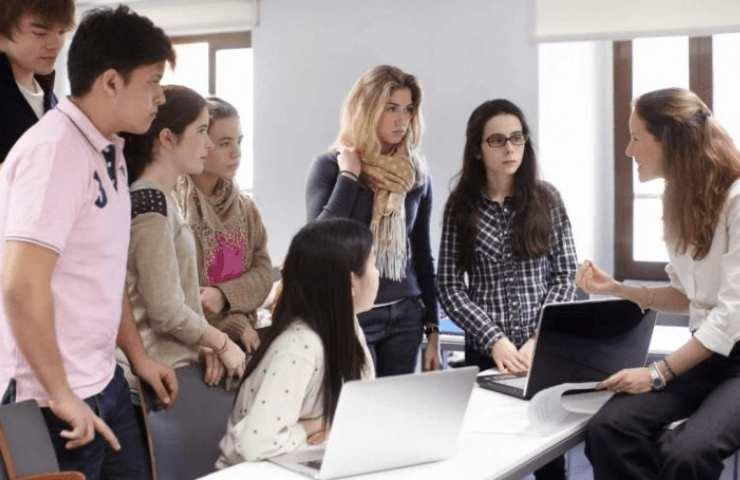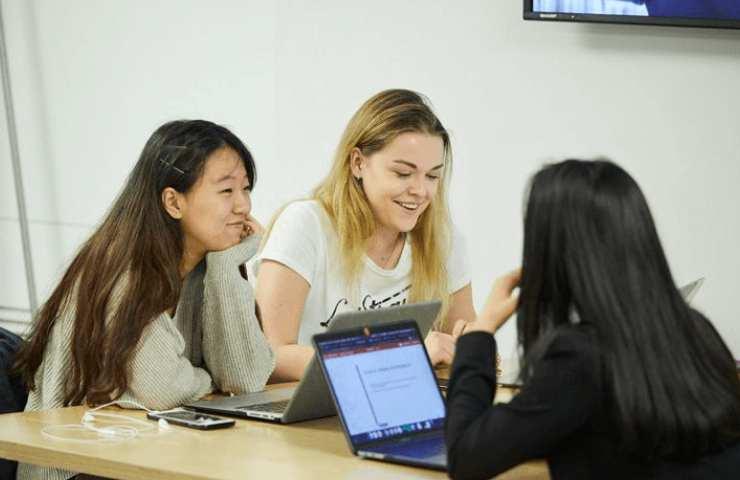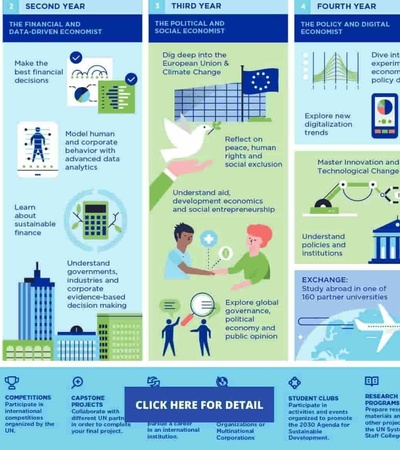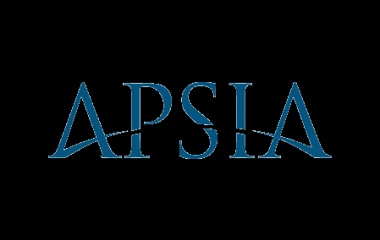
Dual Degree in Economics & International Relations
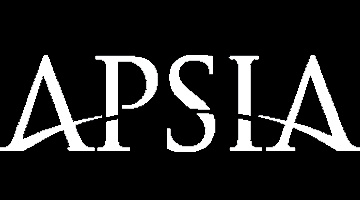

- Home
- Studies
- Undergraduate Degrees
- Dual Degree In Economics & International Relations
A UNIQUE DUAL DEGREE IN ECONOMICS & INTERNATIONAL RELATIONS
The study plan for the Dual Degree in Economics & International Relations at IE University has been designed to provide a prestigious academic experience. Our faculty is composed of experts with extensive links between IE University and the professional world.
Our dual degree equips young, ambitious individuals with the skill set to become professionals capable of facing global challenges with an analytical mindset.
Through our hands-on teaching methodology, students of this dual degree will find the perfect balance between theoretical and practical education.
This enables them to develop profiles that can be adapted to the reality of the 21st century and acquire the most in-demand skills.

DUAL DEGREE IN ECONOMICS & INTERNATIONAL RELATIONS Study plan
LEARN MORE ABOUT OUR DUAL DEGREE IN ECONOMICS & INTERNATIONAL RELATIONS degree
FIRST YEAR: BUILDING THE FOUNDATIONS
During the first year, you will sharpen your quantitative skills by diving into the foundations of economics, mathematics and statistics while studying the history of international relations and research methods. Through this comprehensive approach, you will learn the fundamentals of both disciplines that encompass your degree.
SECOND YEAR: BECOME A FINANCIAL AND DATA-DRIVEN ECONOMIST
This year, you will gain the tools needed to view the world from a financial perspective. You will explore how capital markets work and discover current financial trends and new digital platforms. You will also analyze how finance plays a role in international relations and the political economy and acquire quantitative practical skills to analyze, model and visualize data using the latest techniques.
THIRD YEAR: BECOME A POLITICAL AND SOCIAL ECONOMIST
You will explore political theories, political economy and international law, and learn how to negotiate conflicts, climate change agreements and social and development projects. With this background, you will learn to discuss the political economy of international institutions like the European Union or the foreign policy of different countries with confidence. What’s more, you will acquire skills to solve the economic dimensions of social issues like poverty, human rights, environmental issues or conflicts.
FOURTH YEAR: BECOME A POLICY AND DIGITAL ECONOMIST
During this year, you will go beyond the fundamentals. You will not only cover topics like macroeconomics, fiscal and monetary policy, the economics of globalization, social insurance and public investment, but you will also study more advanced topics like labor economics, institutional economics or the economics of well-being. Additionally, you will learn about the new digital economy, ecosystems and platforms as well as the policies needed to incorporate new technological changes and innovation in the digital era. During the second semester, you will be able to study abroad in various universities around the globe and take the electives of your choice.
FIFTH YEAR: BECOME A MANAGERIAL ECONOMIST
Ultimately, a global economist is not only focused on research and analysis but also on managing international economic projects with multinational corporations, organizations or development banks. You will acquire the skills and knowledge necessary to become an efficient manager in these contexts and environments. During the final year, you will become familiar with the latest technologies in machine learning, artificial intelligence, programming and economic analysis, so you are fully prepared to hit the ground running in your future role.
THE BIE + BIR LEARNING JOURNEY
Your path to career success unveiled through our engaging infographic: Explore it to discover more about the program structure!
Learning a new language can open up a world of new opportunities
IE University considers multiple language acquisition to be a key element of its educational model, leading to success in both work and study.
The Language Center at IEU is proud to offer students the possibility to study a wide range of languages, including French, German, Portuguese, Chinese, Arabic, Spanish, and English. With such a large variety of options, our students are able to personalize their academic path to meet their future career plans and objectives.

The Language Center at IEU
The Language Center helps students develop their multilingual communicative skills to help them flourish in the international labor market.
Acreditations
COMPETENCES
Basic competences
GENERAL COMPETENCES
- Analyze companies’ needs to adapt instruments, products and services to their specific features.
- Organize and plan for situations that pose a challenge for decision-making in light of a company’s internal problems.
- Collect, analyze and summarize information from different sources in order to later apply it to business management.
- Ability to communicate in English orally and in writing.
- Adapt a company’s products and services using data analysis instruments.
- Define mechanisms enabling adaptation to new situations in the business environment.
PROGRAM-SPECIFIC COMPETENCES
- Apply solutions that are efficient in a competitive market based on national and international economic knowledge.
- Manage a small company or organization, understanding its competitive and institutional position and identifying its strengths and weaknesses.
- Understand the duties of the different management bodies of a medium or large company or organization in order to perform the management tasks entrusted to it.
- Evaluate a company’s current situation and foreseeable future in terms of specific situations and markets, using relevant records to enable decision-making.
- Create management projects for a company as a whole or its different functional units, identifying relevant economic information sources and their contents.
- Recognize a company’s economic, global and structural situation within the labor market in which it operates, including the subject and/or the company.
- Interpret the current socioeconomic context based on basic historical, philosophical and political knowledge.
- Apply the appropriate business diagnostics tools and techniques to each stage of development in order to obtain better evaluation and decision-making at a company.
- Use the most appropriate models and research methods for a given company in light of its context and normal spheres of business development.
- Use knowledge of information and communication technologies in all professional activities.
- Apply professional judgment based on using technical instruments to analyze problems.
- Identify and manage the conditions enabling employees’ personal development in everyday strategic business settings.
- Identify the differences, problems and needs present within an organization in order to properly manage them.
- Access, recognize and use relevant data and information in business settings.
- Create recommendations for action by applying the legal framework in force.
- Use cost accounting to make company decisions in collaboration with different corporate stakeholders.
- Apply novel business ideas in order to design an entrepreneurial reality.
- Use market strategies in different sectors analytically.
- Compile, distribute and present statistical data for software development in economics settings.
- Apply IT solutions to corporate issues, taking the latest advances in the sector into consideration.
TRANSVERSAL COMPETENCES
- Identify the main cultural identity traits that characterize today’s world by understanding the main contemporary ideological trends.
- Behave professionally in accordance with the core principles and ethics of the profession. Manage unforeseen situations by being able to adapt to organizational changes.
- Use knowledge of the discipline to analyze and evaluate current situations.
- Form a part of interdisciplinary and multicultural teams to achieve shared goals in a diverse environment.
- Work actively in an international context.

